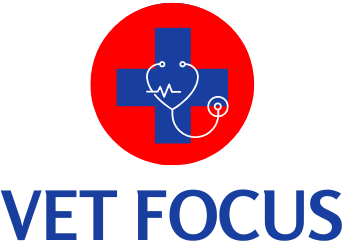Veterinary diseases and conditions encompass a broad spectrum of health issues that affect animals. Whether you're a veterinarian, a pet owner, or simply an animal enthusiast, understanding these diseases and their associated conditions is essential for the well-being of our furry, feathered, and scaly companions.
Canine Parvovirus (Parvo): Canine parvovirus is a highly contagious viral disease that predominantly affects puppies and unvaccinated dogs. This devastating illness spreads through contact with infected feces, contaminated surfaces, or even on the clothing and shoes of humans who have been in contact with infected dogs. Infected dogs often exhibit severe symptoms, including profound diarrhea, vomiting, lethargy, and loss of appetite, which can quickly lead to dehydration and, in some cases, death if left untreated. Vaccination is the cornerstone of preventive care, with puppies receiving a series of vaccinations from a young age to build immunity against this formidable virus.

Feline Upper Respiratory Infection (URI): URI is a group of contagious infections in cats, akin to the common cold in humans. It is typically caused by viruses like feline herpesvirus and feline calicivirus, leading to symptoms such as sneezing, nasal discharge, coughing, and conjunctivitis. Cats can contract URIs through close contact with infected felines, sharing litter boxes or food bowls, or exposure to contaminated environments. While treatment often involves supportive care, including keeping the cat hydrated and providing proper nutrition, it may also require antiviral medications in some cases.
Canine Hip Dysplasia: Hip dysplasia is a common orthopedic condition in dogs, particularly in large breeds. It arises from a genetic predisposition where the hip joint fails to develop properly. Dogs with hip dysplasia may experience pain, lameness, and difficulty moving. Management typically involves pain relief through medications, physical therapy, and, in severe cases, surgical intervention. Lifestyle modifications, including weight management, low-impact exercise, and joint supplements, are also essential in enhancing the quality of life for affected dogs.

Gastrointestinal Parasites: Common gastrointestinal parasites in pets encompass roundworms, hookworms, tapeworms, and giardia, often resulting in digestive disturbances, weight loss, and lethargy. These parasites can be transmitted through the ingestion of contaminated food, water, or feces. Preventive measures include regular deworming and the practice of good hygiene. Furthermore, some of these parasites carry a zoonotic potential, highlighting the need for comprehensive deworming and the maintenance of proper hygiene practices for both pets and their owners.
Dental Disease in Pets: Dental issues, such as periodontal disease, tooth decay, and gingivitis, are prevalent in pets. Poor oral health can lead to pain, difficulty eating, and systemic health problems. Preventive dental care, including regular dental check-ups, professional cleanings, and home dental care like brushing and dental treats, plays a vital role in maintaining healthy teeth and gums in pets.
In conclusion, understanding and addressing these common veterinary diseases and conditions are essential for safeguarding the health and well-being of our beloved animal companions. Timely vaccinations, regular veterinary check-ups, and proactive preventive measures are fundamental in ensuring a long and healthy life for our pets. By staying informed and proactive, we can provide the best possible care for our furry, feathered, and scaly friends.
For additional recommendations and guidance about veterinary science as well as practice, Kindly visit our website thevetfocus.com
Also explore Vet Focus's "Vet School Bundle", which includes Veterinary Pharmacology, Equine Health, and Diseases and Conditions. This study resource helps you to equip with the essential topics in the field of veterinary medicine."

